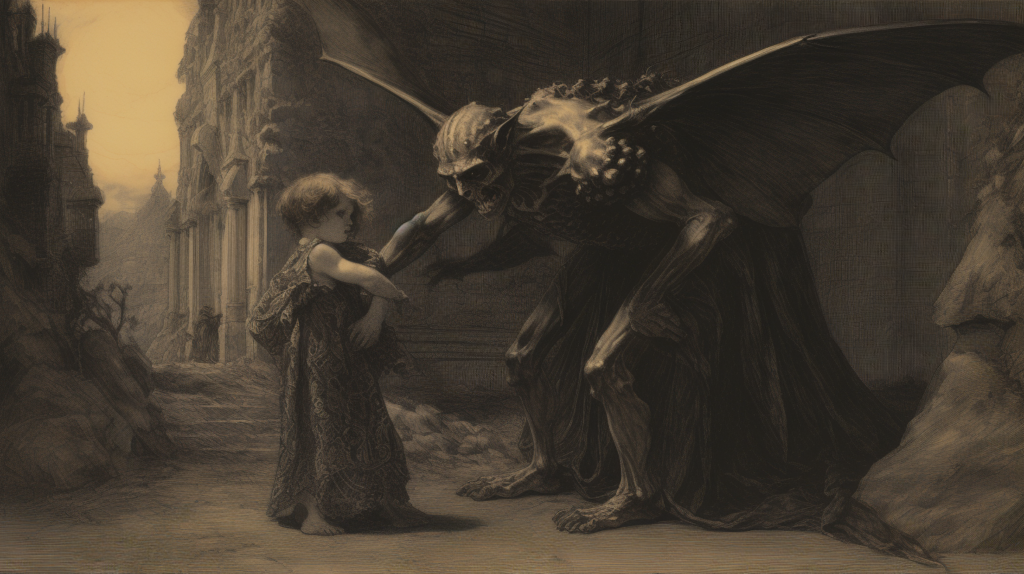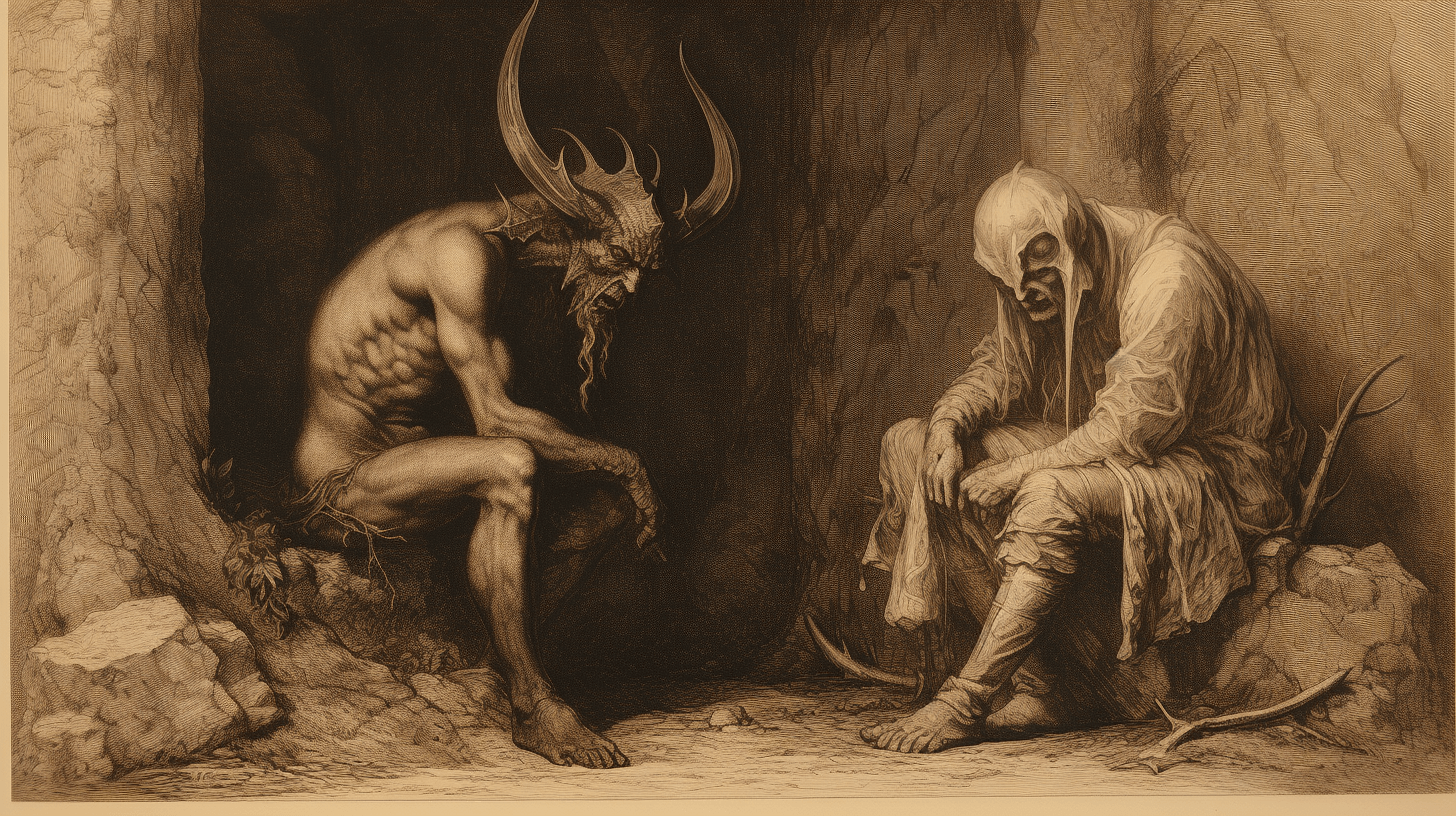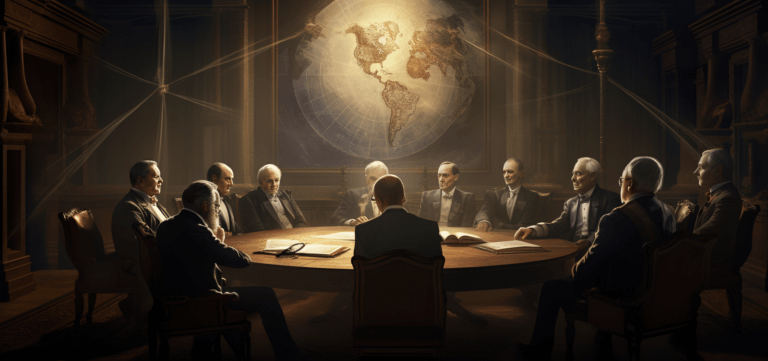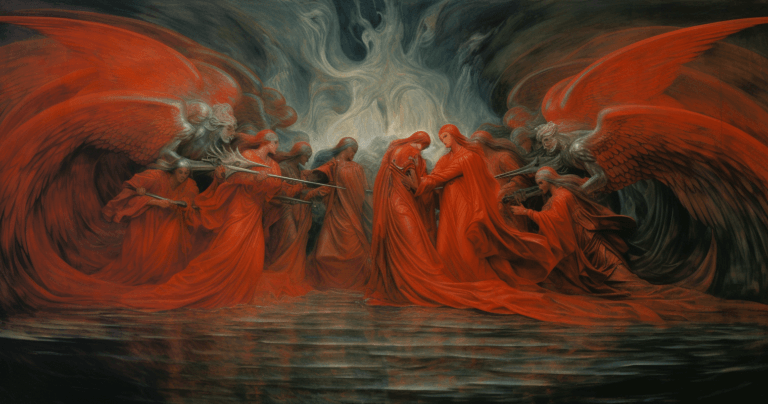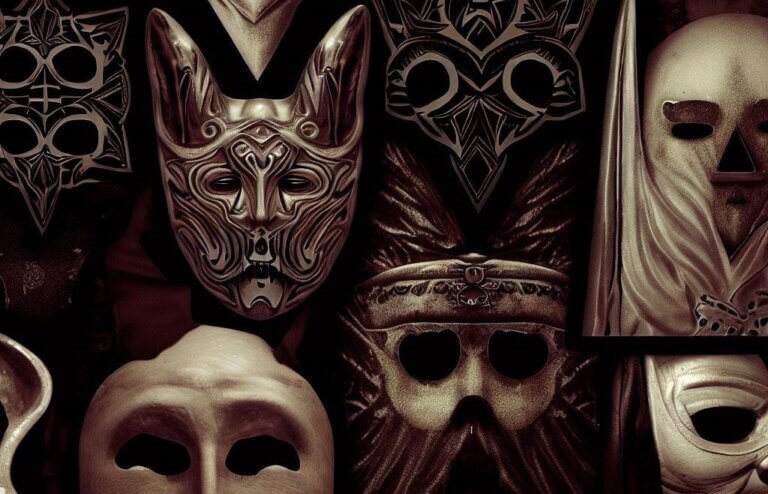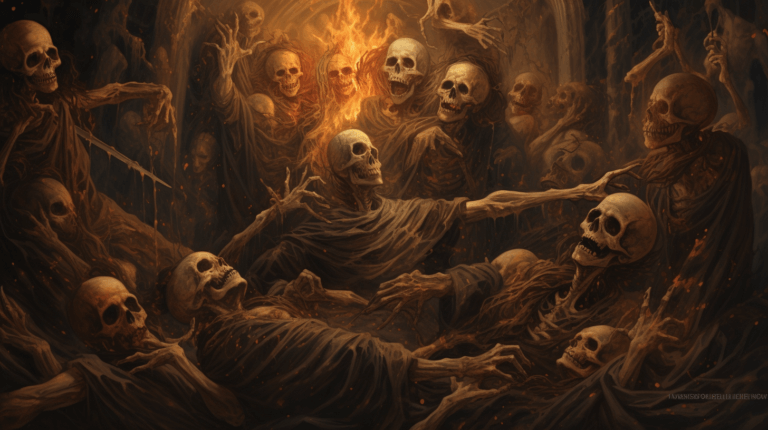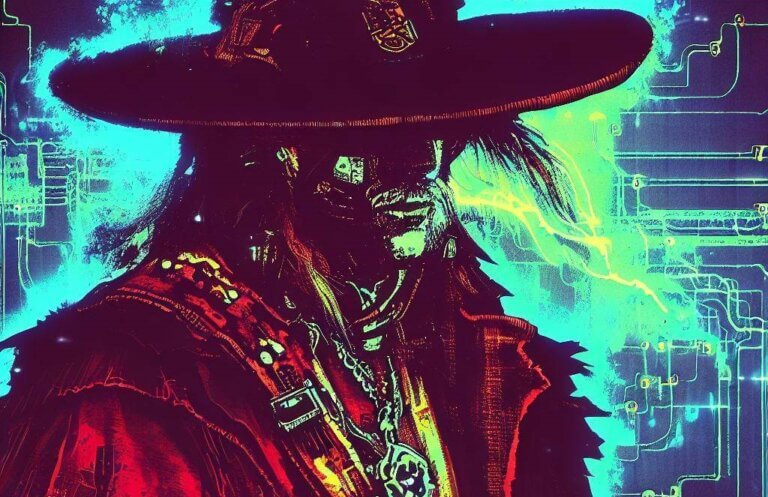Christian Demonology: Unveiling the Dark Forces in Christianity
Introduction to the Study of Demons
Demonology, the study of demons, has been an integral part of Christian theology and mythology for centuries. Rooted in the belief in spiritual entities that oppose God’s divine plan, Christian demonology explores the nature, origins, and activities of these malevolent beings. This article delves into the depths of Christian demonology, shedding light on its historical roots, prominent demons, and the battle between good and evil in Christian tradition.
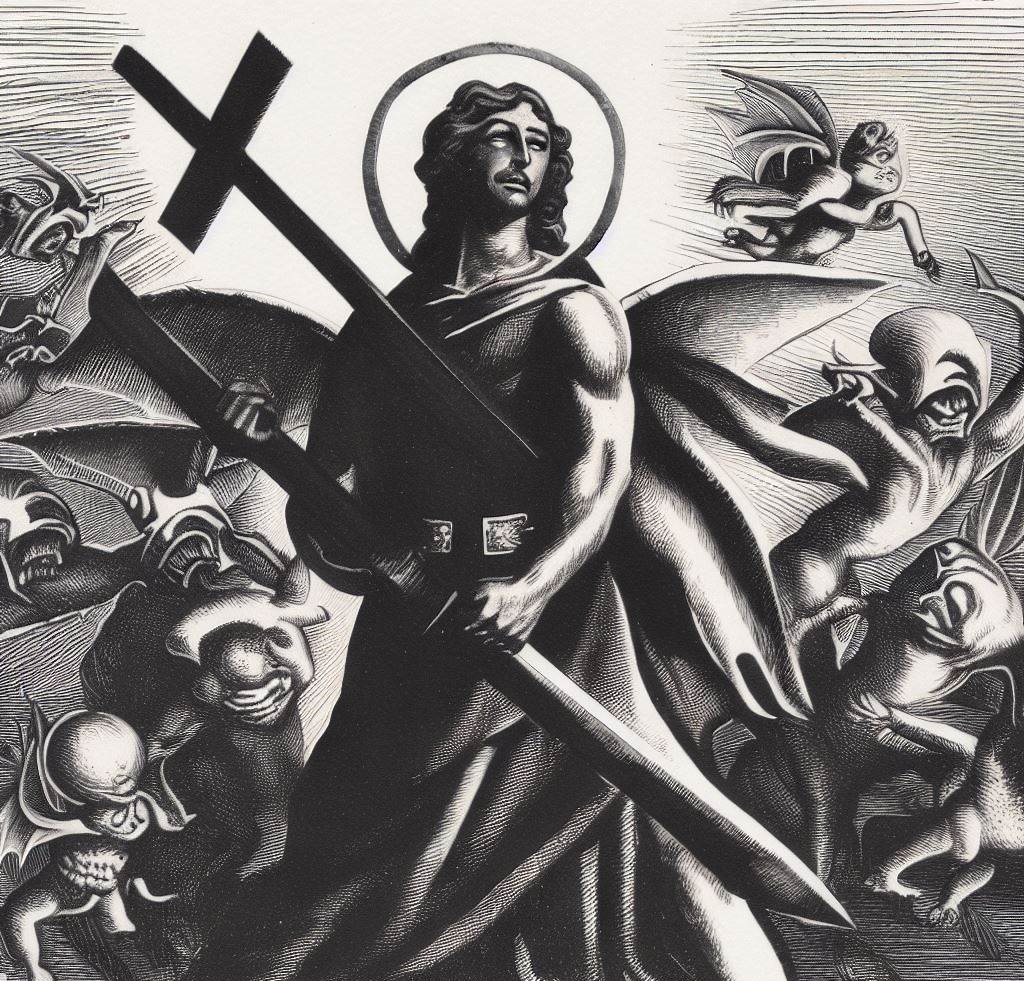
Biblical Origins of Demonology
Christian demonology finds its origins in the Bible, particularly in the New Testament, where numerous accounts of demonic possession, exorcisms, and confrontations with evil spirits are recorded. One of the most well-known instances is found in the Gospels, where Jesus himself encounters demons and casts them out, revealing his power over the forces of darkness.
In the Gospel of Mark, for instance, Jesus confronts a man possessed by a legion of demons who refers to themselves as “Legion” and begs Jesus not to torment them before being cast into a herd of pigs (Mark 5:1-20). This account exemplifies the belief in the power of Jesus over evil spirits and the idea that demons can possess and control human bodies.
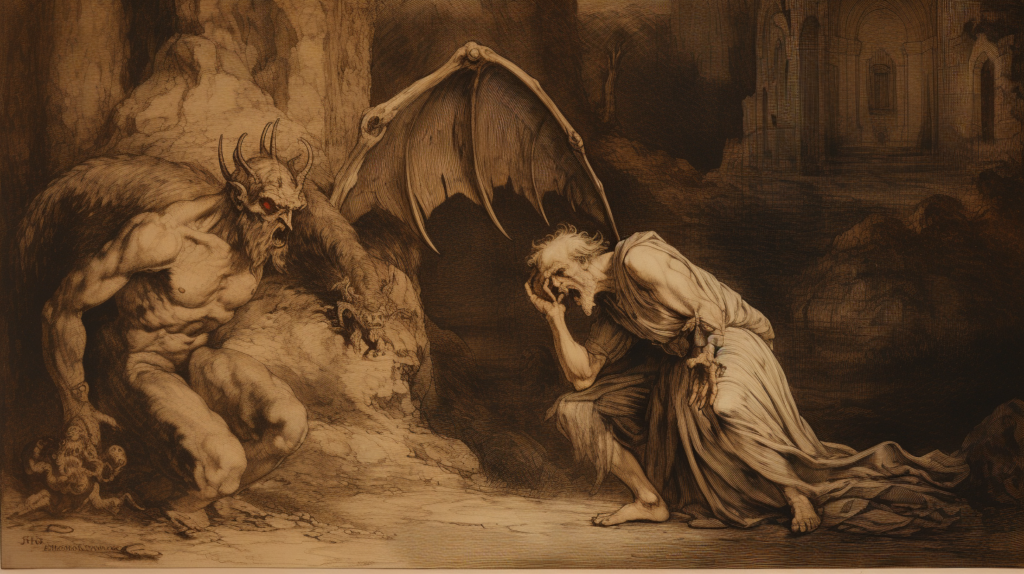
Prominent Demons in Christian Demonology
Christian demonology features various demons believed to be under the command of Satan, the chief adversary of God. While the Bible does not provide a comprehensive list of demonic entities, Christian tradition has assigned names and attributes to several prominent demons. Here are a few notable examples:
- Lucifer: Also known as Satan or the Devil, Lucifer is often depicted as a fallen angel who rebelled against God. He is portrayed as the embodiment of evil and is believed to lead a host of demons in their rebellion against God and the corruption of humanity.
- Beelzebub: This demon’s name translates to “Lord of the Flies” and is often associated with the prince of demons. In Christian demonology, Beelzebub is believed to be a powerful demon who tempts individuals into committing sinful acts.
- Asmodeus: Asmodeus is known as the demon of lust, depicted as a malevolent entity who preys upon human desires and fosters immoral behavior. In the apocryphal Book of Tobit, Asmodeus is exorcised by the archangel Raphael.
- Belial: Belial is considered a master of deceit and one of the chief demons in Christian demonology. Associated with lawlessness and rebellion, Belial is often portrayed as a tempter who leads people astray.
- Leviathan: While often interpreted as a sea monster in biblical texts, Leviathan is sometimes considered a demonic entity in Christian demonology. It symbolizes chaos, destruction, and the forces of darkness.
These are just a few examples of the many demons mentioned or implied within Christian tradition. Each demon is believed to possess distinct characteristics, temptations, and roles in the spiritual realm.
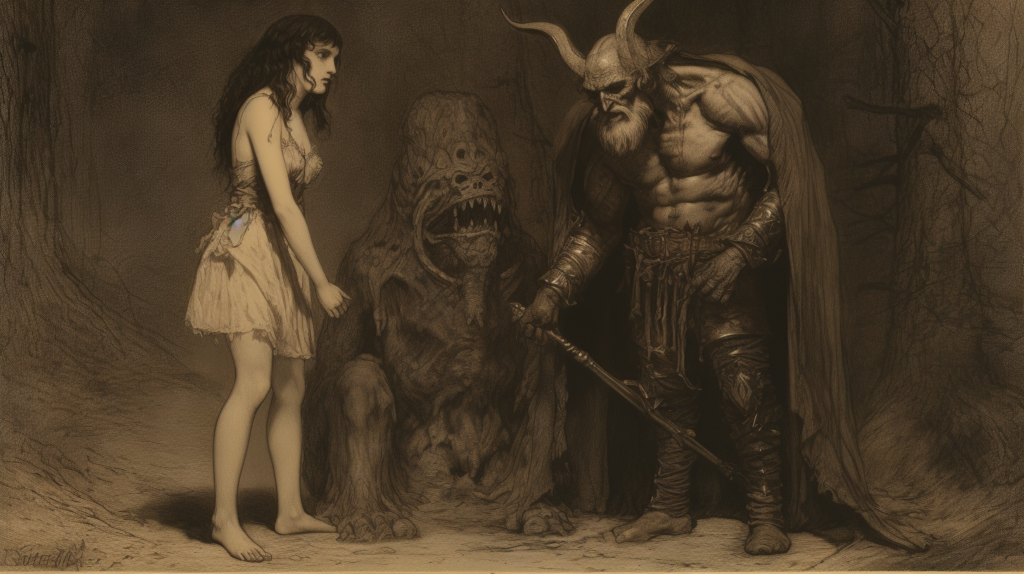
Exorcism and Spiritual Warfare
The presence of demons in Christian demonology has led to the practice of exorcism, the expulsion of evil spirits from individuals or places believed to be possessed. Exorcisms are performed by authorized clergy members who follow established rituals, prayers, and the authority of Jesus Christ.
The Roman Catholic Church, for example, has a formal rite of exorcism that requires the permission of a bishop. In popular culture, movies such as “The Exorcist” have brought attention to the intense and dramatic nature of exorcisms, although the reality is often far less sensationalized.
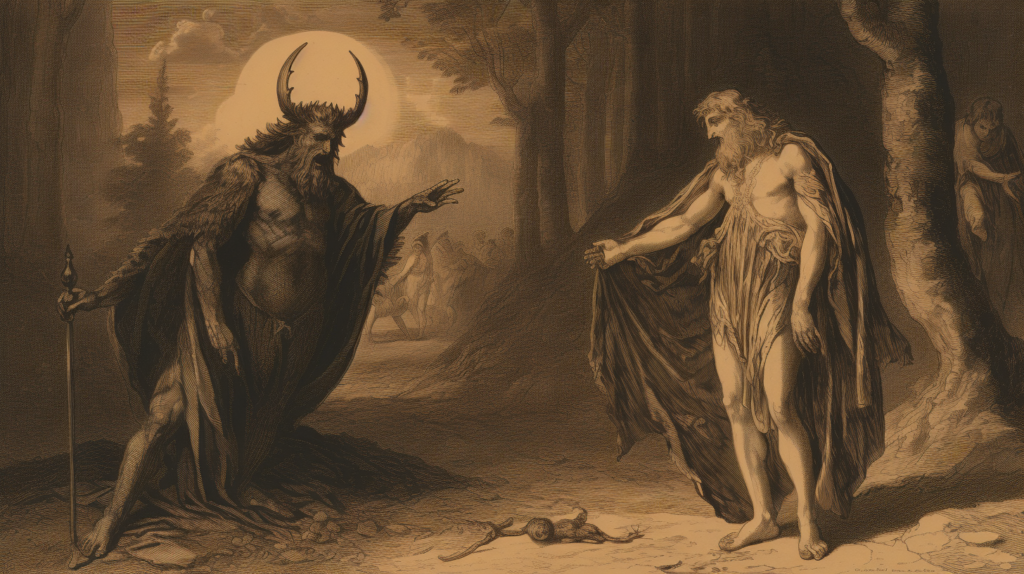
Demonology in Modern Christianity
While demonology remains a significant aspect of traditional Christianity, its prominence and interpretation vary among denominations and individual believers. Some Christian groups emphasize the reality and influence of demons, viewing them as active spiritual adversaries in the daily lives of believers. Others take a more metaphorical or symbolic approach, understanding demons as representations of internal struggles with sin and temptation.
In recent years, there has been a resurgence of interest in demonology within certain Christian circles, resulting in discussions and teachings on spiritual warfare, the discernment of spirits, and the influence of demonic forces in contemporary society.
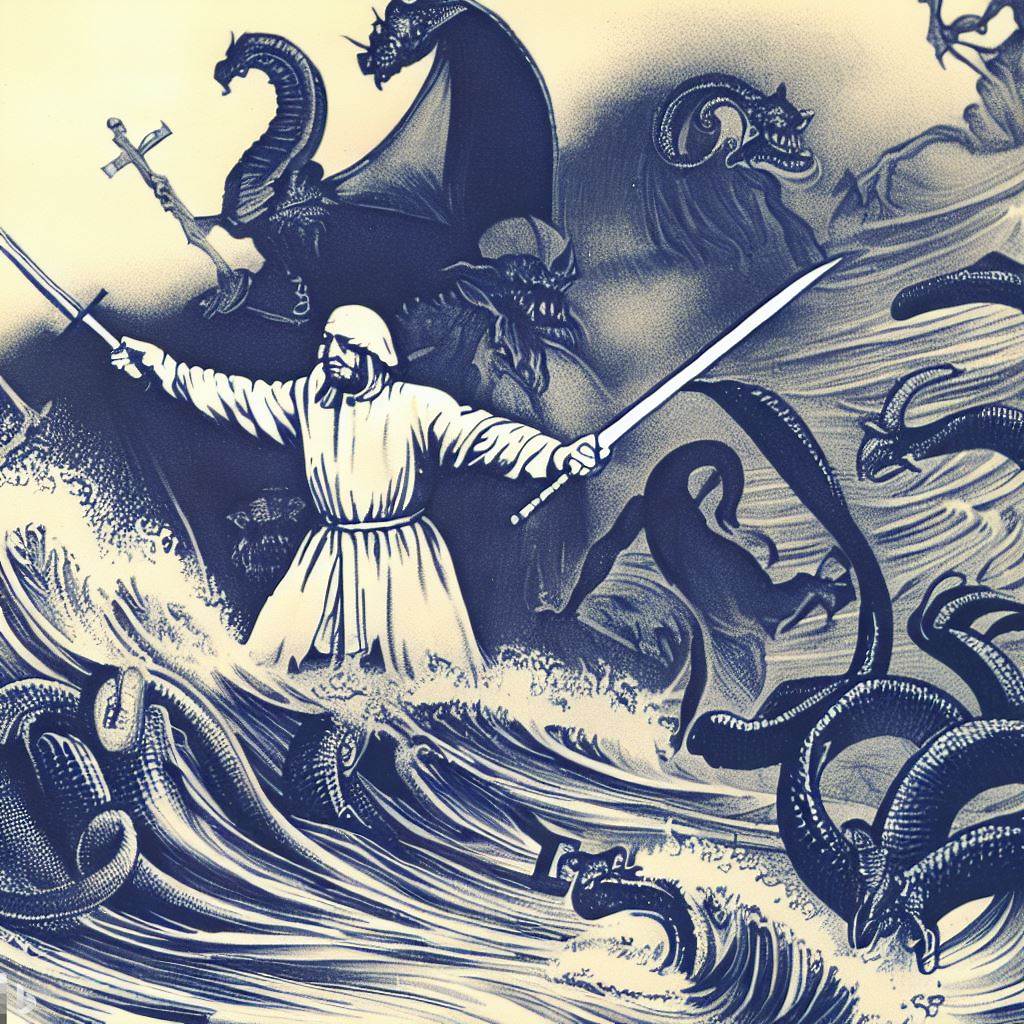
Conclusion
Christian demonology is a multifaceted field that explores the nature and activities of demons within the context of Christian theology and mythology. Rooted in biblical accounts and centuries of Christian tradition, it offers insight into the spiritual battle between good and evil. While beliefs and interpretations may differ among Christian denominations and individuals, demonology serves as a reminder of the importance of discernment, spiritual warfare, and the ultimate triumph of good over evil in Christian faith.
By understanding Christian demonology, believers can deepen their understanding of the spiritual realm and seek to align themselves with God’s divine plan, while remaining vigilant against the forces that seek to oppose it.
